10 projects by Drury University's Master of Architecture students
A renewable energy facility, underwater farms and buildings designed to restore and empower communities are among the 10 students projects in this VDF school show curated by Drury University's Hammons School of Architecture. The projects were completed by students on the Masters of Architecture course at the US school, during which they investigate the "impacts of The post 10 projects by Drury University's Master of Architecture students appeared first on Dezeen.

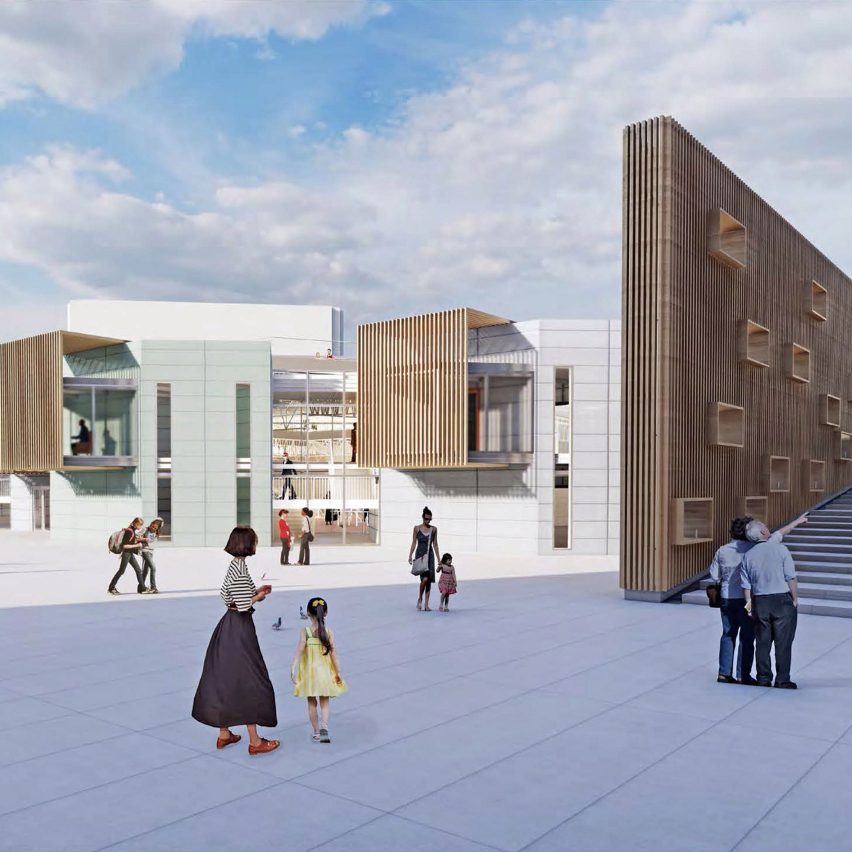
A renewable energy facility, underwater farms and buildings designed to restore and empower communities are among the 10 students projects in this VDF school show curated by Drury University's Hammons School of Architecture.
The projects were completed by students on the Masters of Architecture course at the US school, during which they investigate the "impacts of urbanisation, climate change, and globalisation on the human experience".
Drury University, Hammons School of Architecture
School: Drury University, Hammons School of Architecture
Course: Master of Architecture
Studio: 5th Year Research and Thesis Studios
Tutors: Marshall Arne, Yong Huang, Maurizio Sabini and Robert Weddle
Course statement:
"Drury University's five-year master's degree concludes in a year-long investigation of the path provided by design research towards personal ethical positions and their development through design work at a range of scales.
"Fall-semester MARC 520 studios often investigate the impacts of urbanisation, climate change, and globalisation on the human experience and development of built landscapes. Students visit and analyse urban sites and engage local practitioners as guides to the cultural and landscape conditions of those sites.
"In the exhibited work from the fall 2019 semester, one studio considered aquaponics systems as the basis for mixed-use development in Seattle, Washington, while another investigated the restructuring of an abandoned dry dock in Boston's seaport district in relation to the ecological and built history and future of Boston Harbor.
"Spring MARC 521 studios are the culmination of a year-long thesis. Fall research seminars guide students as they identify issues of personal significance and concern, consider scholarly and designed precedents, and choose relevant sites and programming opportunities. The spring studio allows the study of these issues and places through semester-long design investigation."
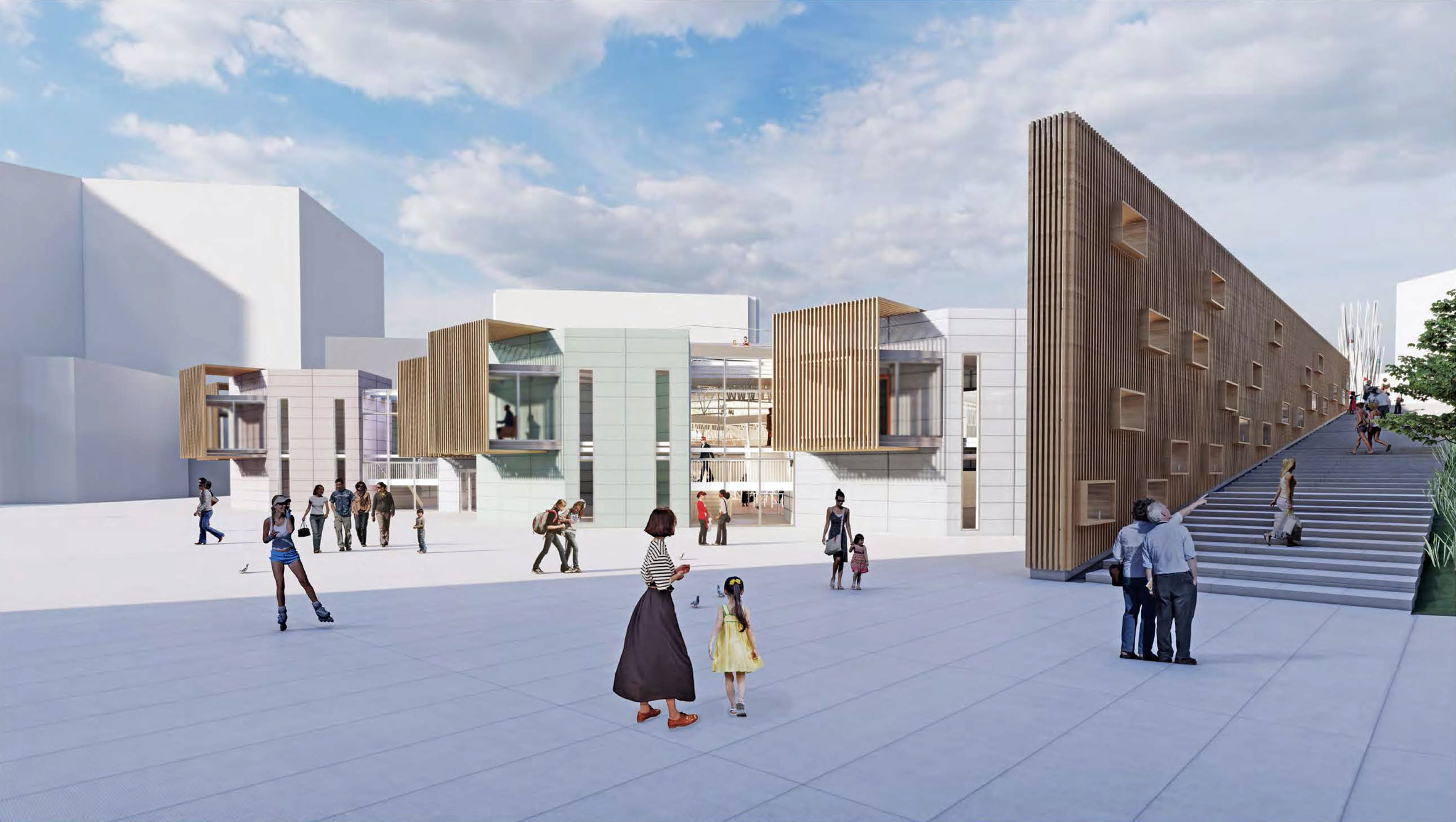
Foreign to Feature, Atlanta, USA, by Nia Damgova
"A comprehension deficit of diverse cultural backgrounds can lead to confusion, fear and conflict.
"Participation in pluralistic societies depends on mutual understanding and tolerance. Nestled in downtown Atlanta, this revitalisation of a once iconic, yet deteriorating, park into a Centre for Cultural Exchange utilises site topography and retaining walls to carve out an urban landscape as a renewed celebration of the city's diversifying culture and spirit.
"The proposed network of spaces facilitates a multiplicity of exchange methods and levels of contact, and stimulates a social structure that builds understanding and celebrates cultural wealth while respecting the autonomy of the individual."
Name: Nia Damgova
Project: Foreign to Feature
Semester: MARC 521, spring 2020
Contact address: nia.damgova@gmail.com
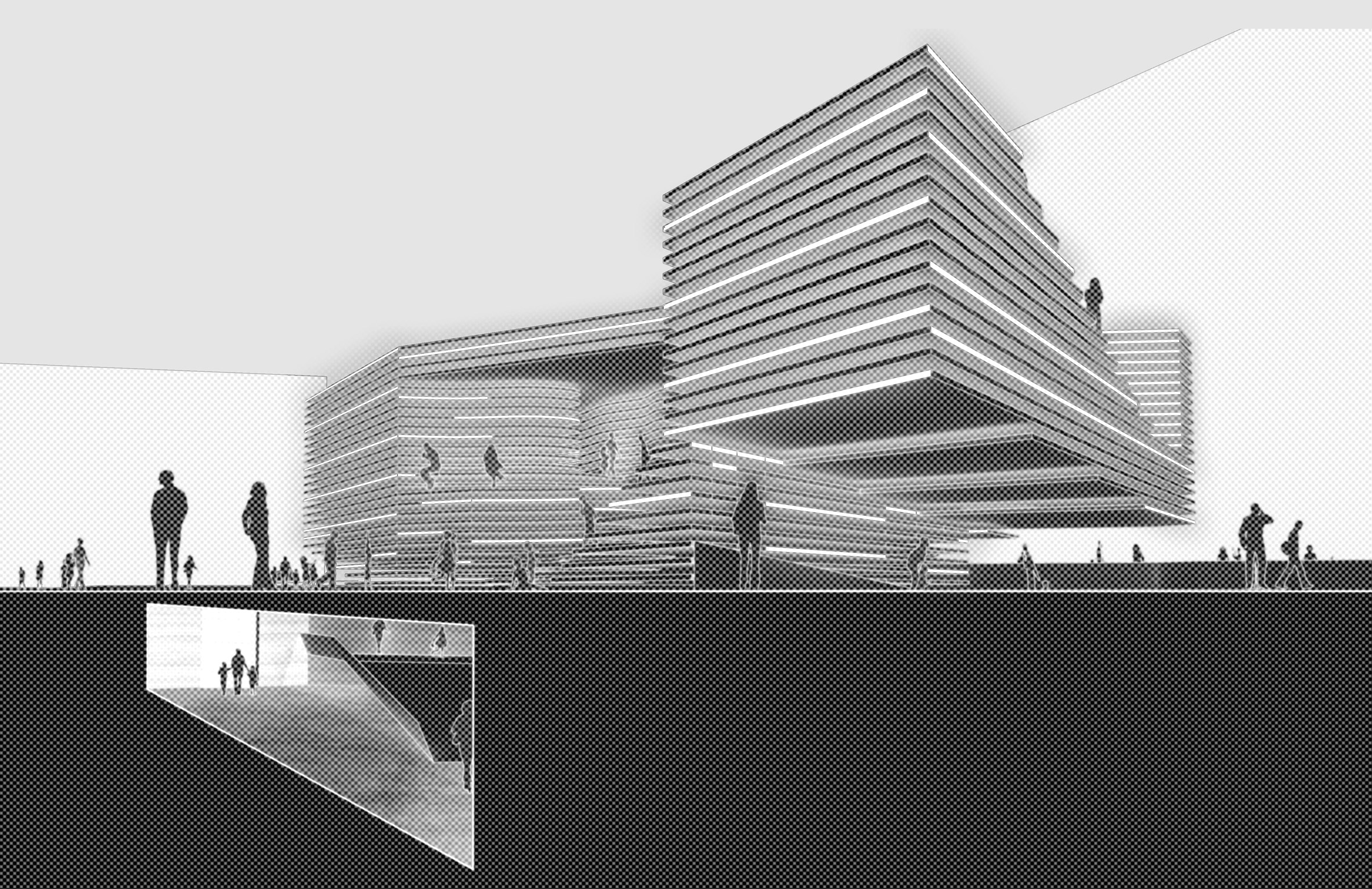
The Rite to Oblivion, Mexico City, Mexico, by Errin Francis
"As the global technoscape expands, the consumption of electronics is devastating landscapes and ecologies, due in part to a crisis of forgetting.
"Technological advances increasingly disembody our collective memory – the encoded, stored memories of a specific group defined by cultural and spatial intersections – and instead create virtual spaces for selective remembrance, over-riding physical loci.
"By engaging the scale of the city, the physical embodiment of collective memory, this project introduces a new type of public architecture. The proposed Technology Forum in Mexico City infuses memory into the urban technoscape by re-proposing a synchronicity of technology with cultural rituals."
Name: Errin Francis
Project: The Rite to Oblivion
Semester: MARC 521, spring 2020
Contact address: efrancis@drury.edu
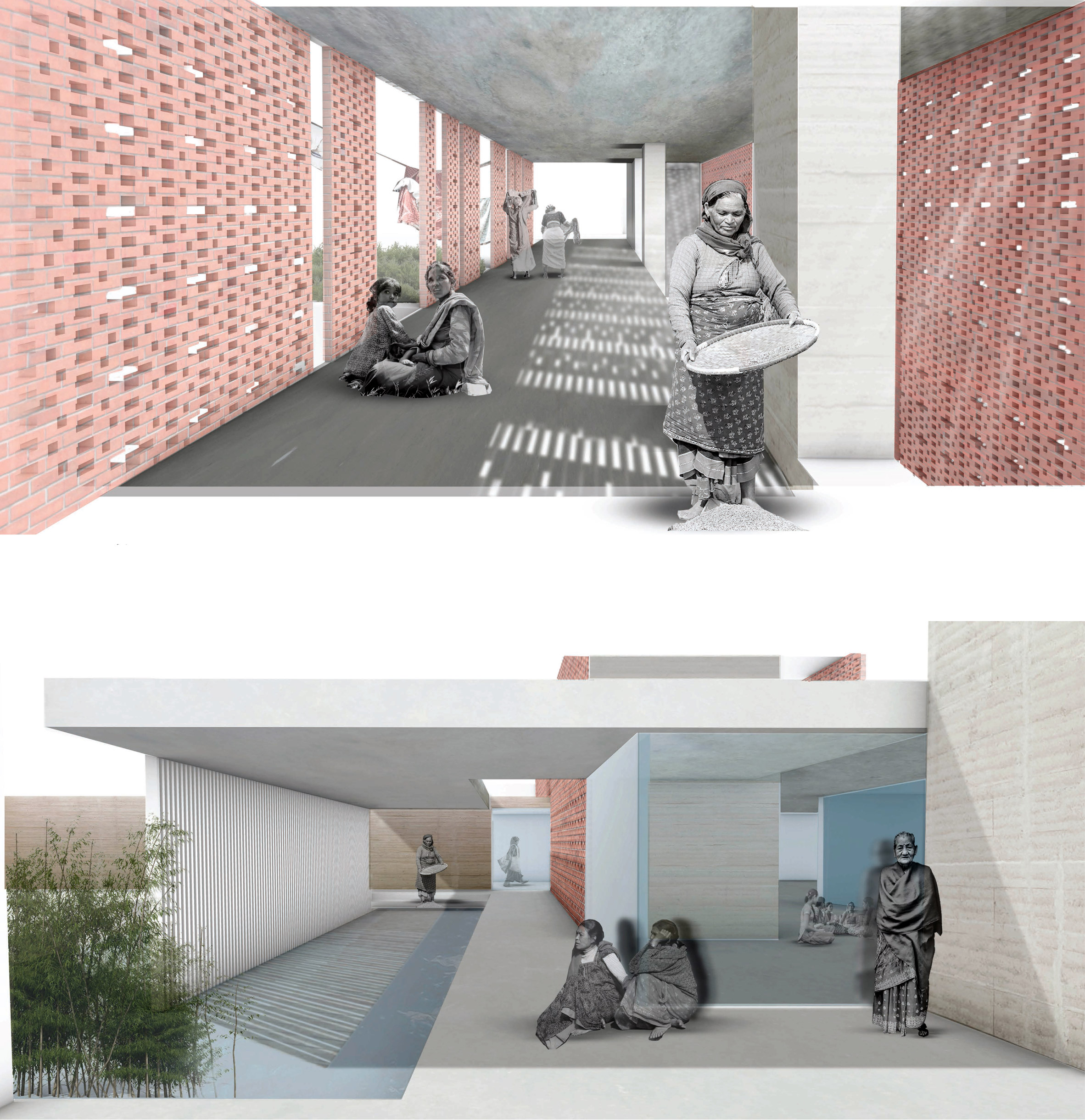
Anchoring Female Adolescents in Unstable Waters, Kathmandu, Nepal, by Morgan Harper
"Health, education, and income are significant contributors to human development.
"This project engages women living in informal settlements where the deficit of health services, learning and employment opportunities, negatively affects their ability to exercise agency within family and society. The research focuses on adolescent females in Kathmandu, Nepal, recognising critical moments where change occurs, and where empowering attitudes and practices can be established.
"The architectural approach responds to tensions between social visibility and invisibility. By translating vernacular methods and materials, and by providing shelter, education and socialisation spaces dedicated to women, the proposal seeks to empower through community."
Name: Morgan Harper
Project: Anchoring Female Adolescents in Unstable Waters
Semester: MARC 521, spring 2020
Contact address: mharper.20@gmail.com
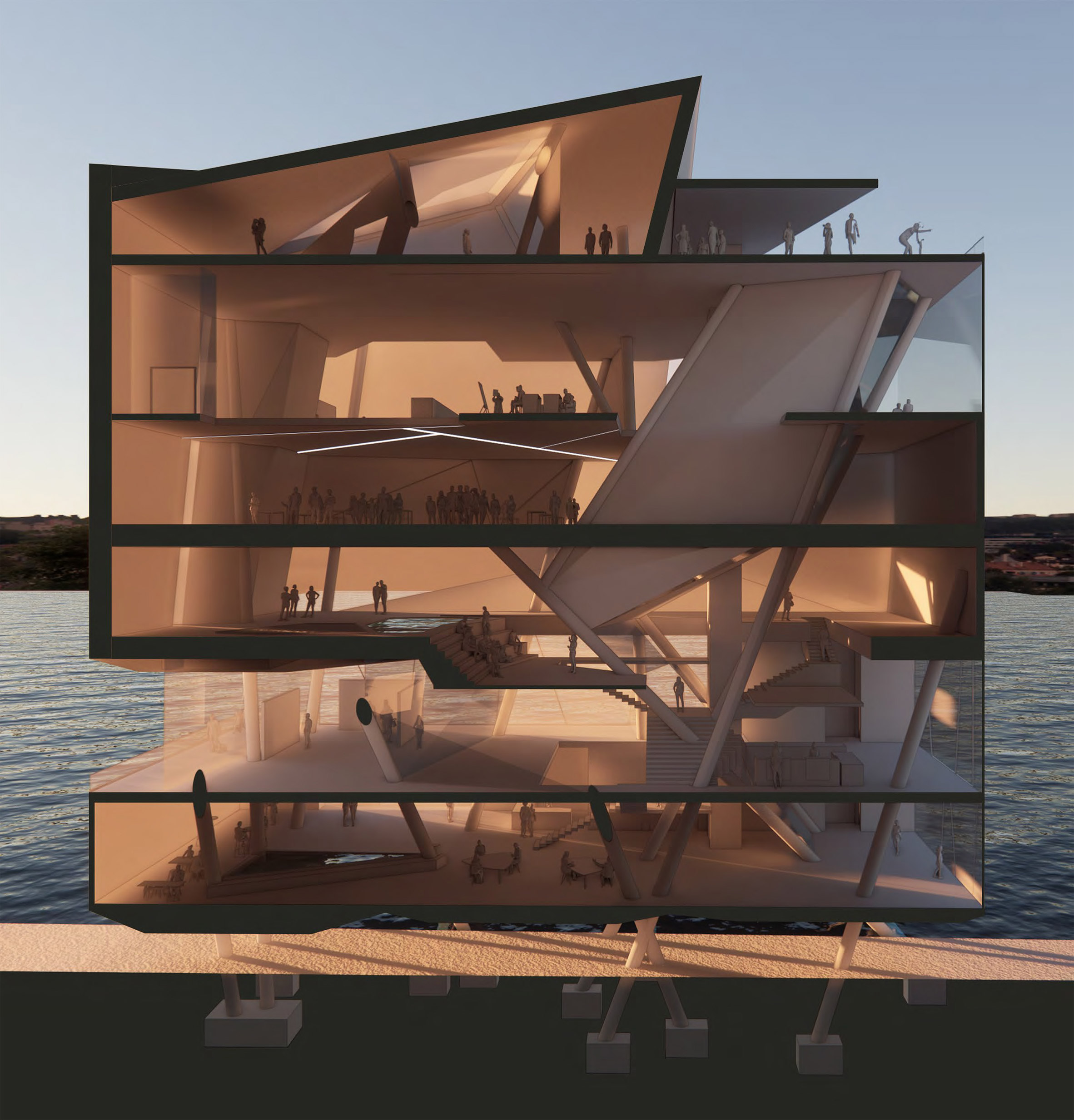
Istrouma Cultural Center, Baton Rouge, USA, by Jenine May
"Sited along the Mississippi River, this project is a critique of human-made flood control infrastructure that has hindered natural processes and contributed to perceptions of the riverfront as unpleasant and high-risk.
"The project counters this with a holistic solution employing construction and landscape as human-centred and long-term environmental strategies, reconciling the relationship between site and society.
"The building is conceived as an ecological machine, embedding filtration mechanisms within its structural cavities. The carefully articulated form encloses inviting interior experiences that take cues from the layered spatial sequences of the forest: root systems, forest floor, bole, and canopy."
Name: Jenine May
Project: Istrouma Cultural Center
Semester: MARC 521, spring 2020
Contact address: jenine.may010@gmail.com
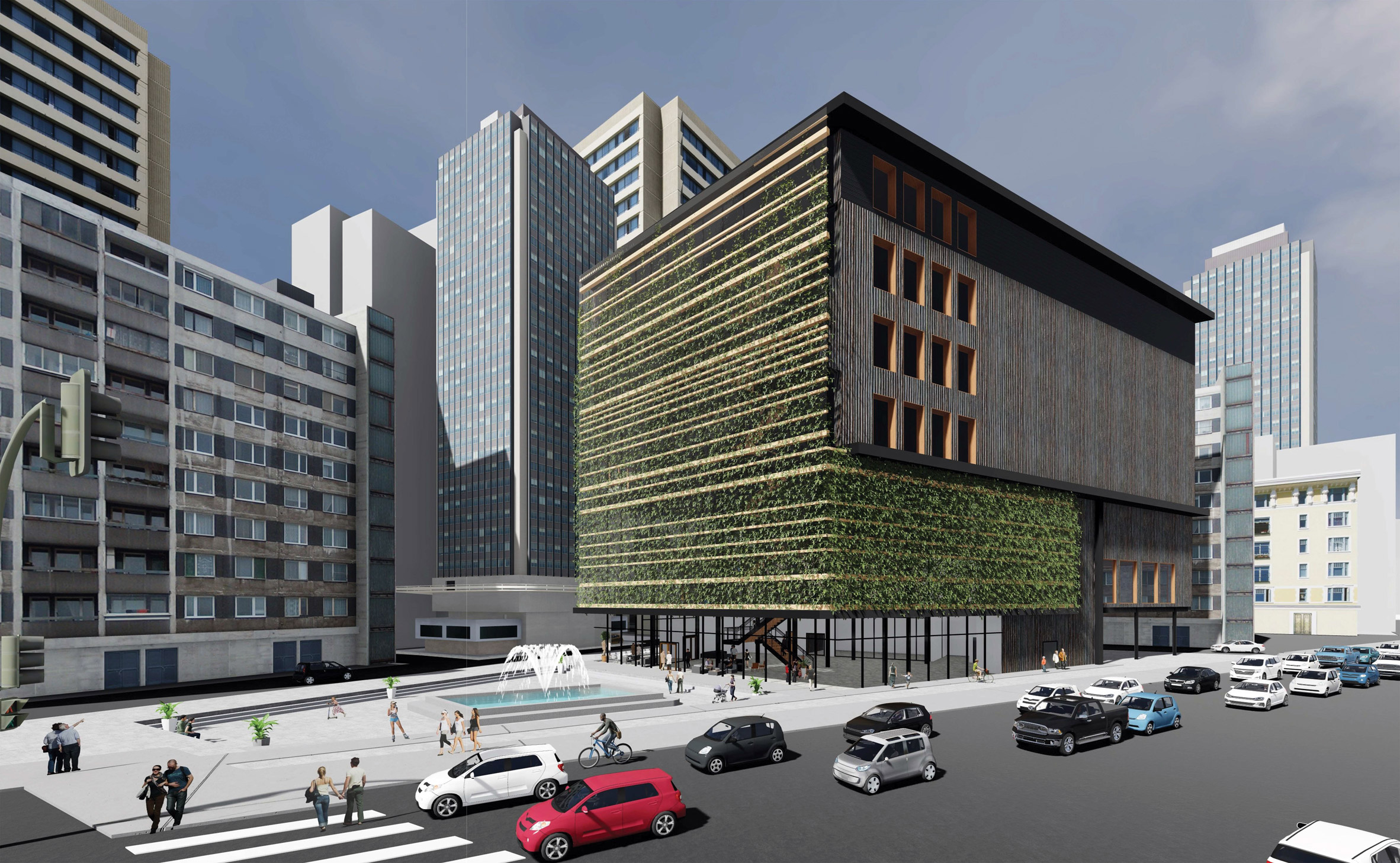
De-Virtualising Community, Tokyo, Japan, by Chelsea McQueen
"This project seeks to disrupt the pattern of overworked and dispassionate individuals living inactive lifestyles due to community virtualisation.
"It engages the young adult community of Tokyo, Japan, where virtualisation breaks down the physical community, leading to poor mental health and isolation. The proposed Personal Development Center merges culturally relevant social constructs with a critique on the wellbeing of individuals in wider contexts.
"It urges quiet young adults to enter, creates an environment that differentiates between individuals while facilitating relationships, and integrates nature into intimate spaces along varied circulation routes that facilitate confidence, stimulate motivation, and provide comfort through transparency."
Name: Chelsea McQueen
Project: De-Virtualising Community
Semester: MARC 521, spring 2020
Contact address: libbyethel12@gmail.com
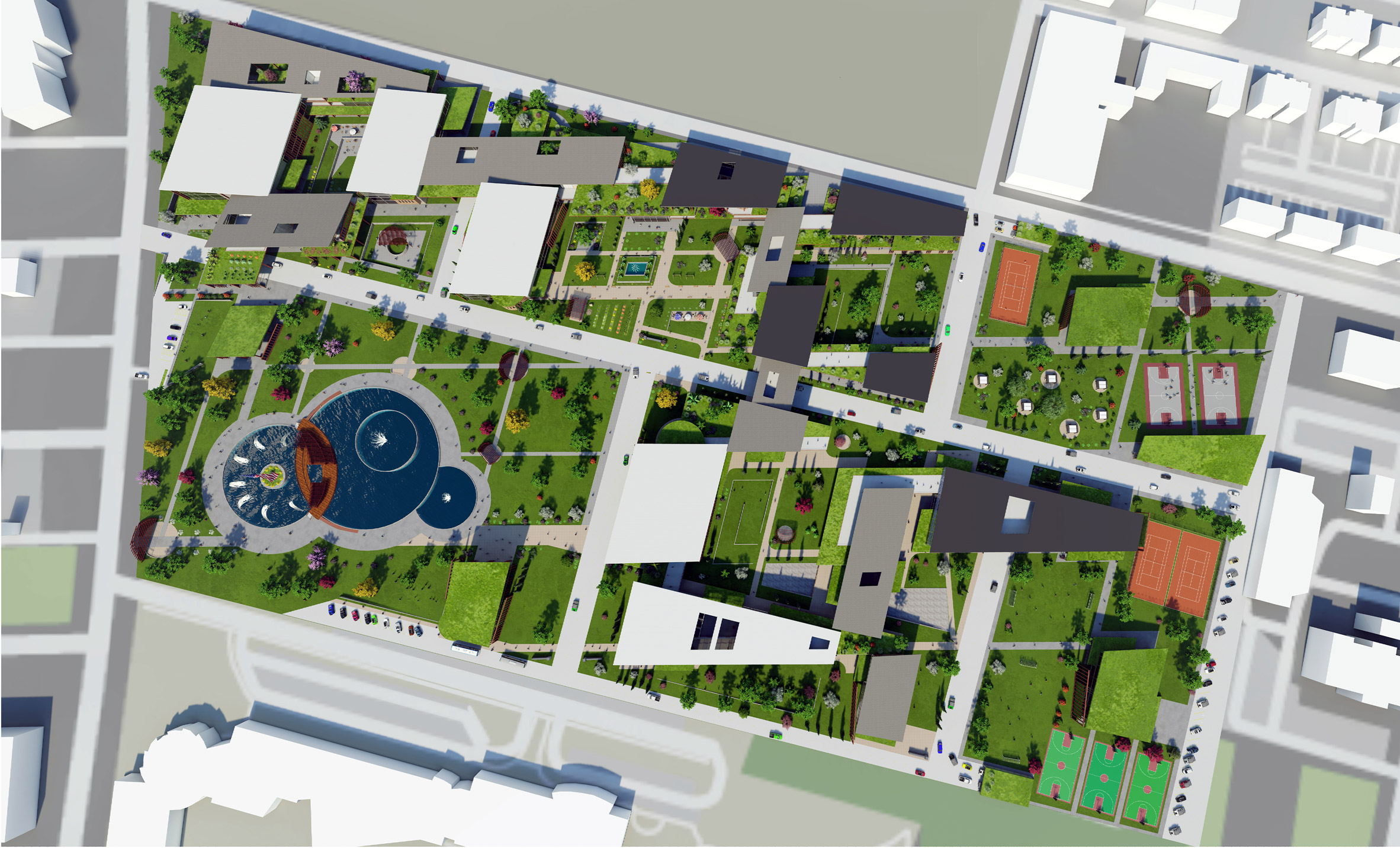
Operation Reintegration, Saint Louis, USA, by Blane Pittman
"Recognising the severe challenges encountered by military veterans, including social isolation, substance abuse, homelessness, and disability, this project proposes a campus-like complex that prioritises social connections for individuals and the collective, while phasing users' progress toward independence and life reintegration.
"Sited on the location of the former Pruitt-Igoe housing, the plan rejects the rational grid of that project while also resisting the temptation to simply mimic the surrounding street grid. Instead, the latter provides the inspiration for a diagonally oriented system of movement axes, stimulating social flows that are further facilitated by ramped courtyards, protected entries, and connected terraces."
Name: Blane Pittman
Project: Operation Reintegration
Semester: MARC 521, spring 2020
Contact address: pittmanblane@gmail.com
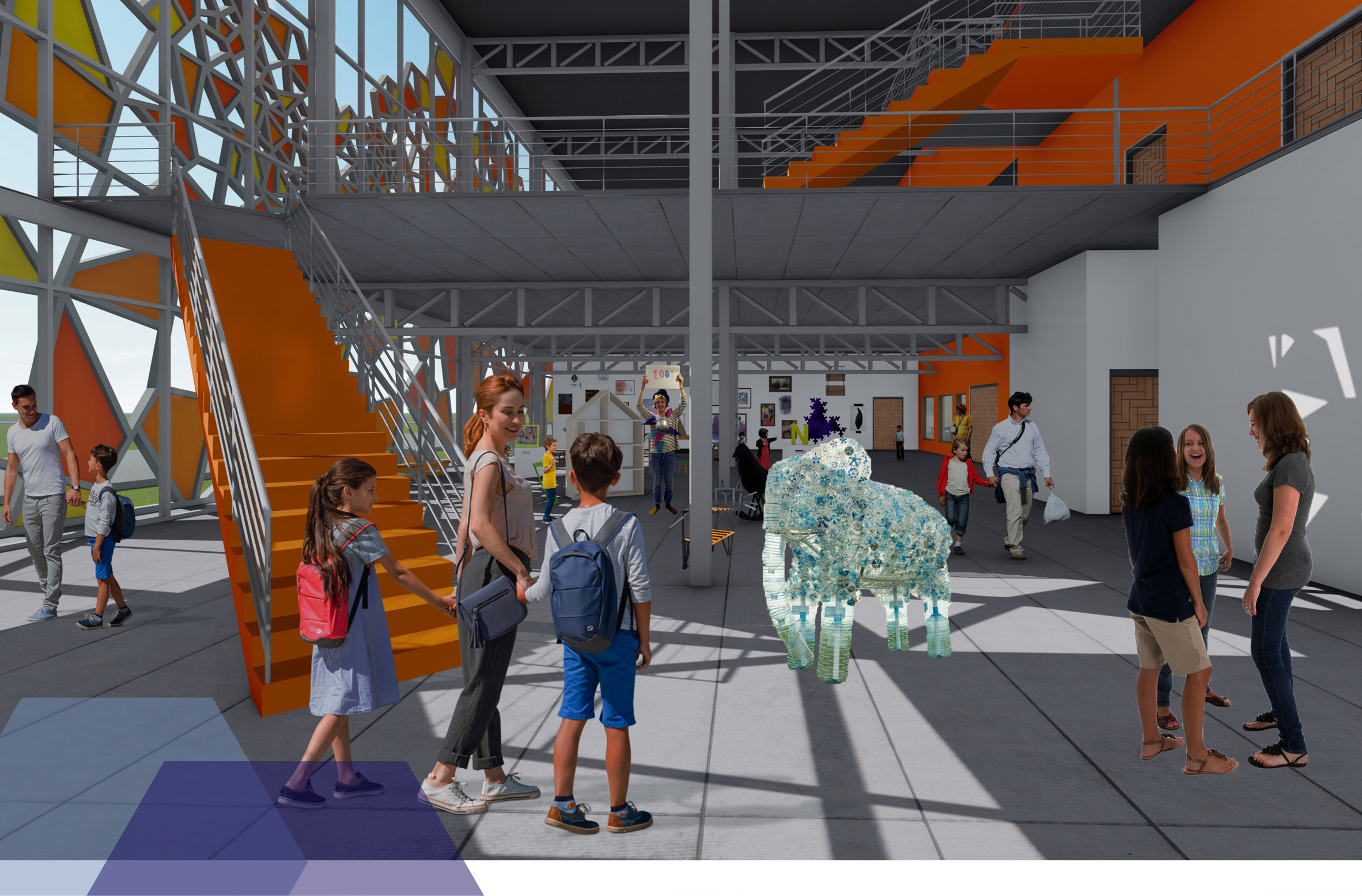
Igniting Creativity, Crowley, USA, by Sara Unerstall
"This project argues that a primary factor in the challenges faced by rural populations is the lack of attention to creativity and experiential learning within rural educational systems.
"Proposing a centre for design-build education in a small town in Acadia Parish, Louisiana, the fostering of creative thinking among younger community members is seen as a benefit to the community more broadly.
"The program engages adults in positive interactions with students and, furthering stimulation of community-wide creativity, the building's design employs playful and dynamic colours and patterns as a way to note the cultural significance of experimentation, experience, and productive making."
Name: Sara Unerstall
Project: Igniting Creativity
Semester: MARC 521, spring 2020
Contact address: seunerstall@gmail.com
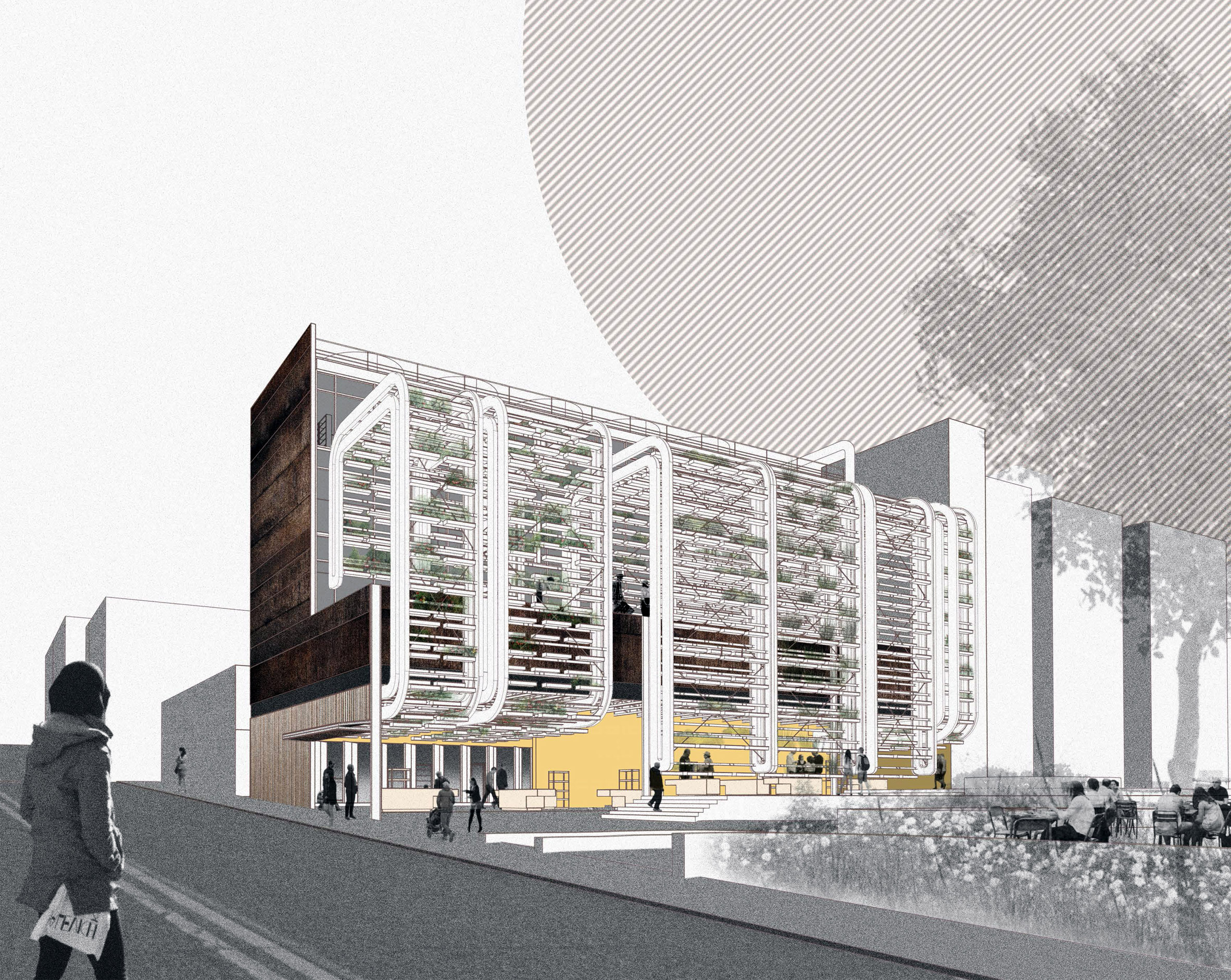
The Loop, Aquaponics and Marxism, Seattle, USA, by Errin Francis
"Aquaponics, combining aquaculture and hydroponics, is a highly innovative system that relies on biological relationships to improve production by reusing nutrients released by fish to grow crop-bearing plants.
"The Loop, an Aquaponics Center in Seattle's International District, is designed as a Marxist object, a machine that functions like architecture. It provides efficiently structured space for community participation in Aquaponics, while simultaneously performing as a renewable energy facility.
"It is innovative, prioritising thoughtfully structured systems over invention. It is efficient, maximising performance by using existing resources and manpower. It is participatory, enabling deeper personal connections and fulfilment in the pursuit of work."
Name: Errin Francis
Project: The Loop, Aquaponics and Marxism
Semester: MARC 520, fall 2019
Contact address: efrancis@drury.edu
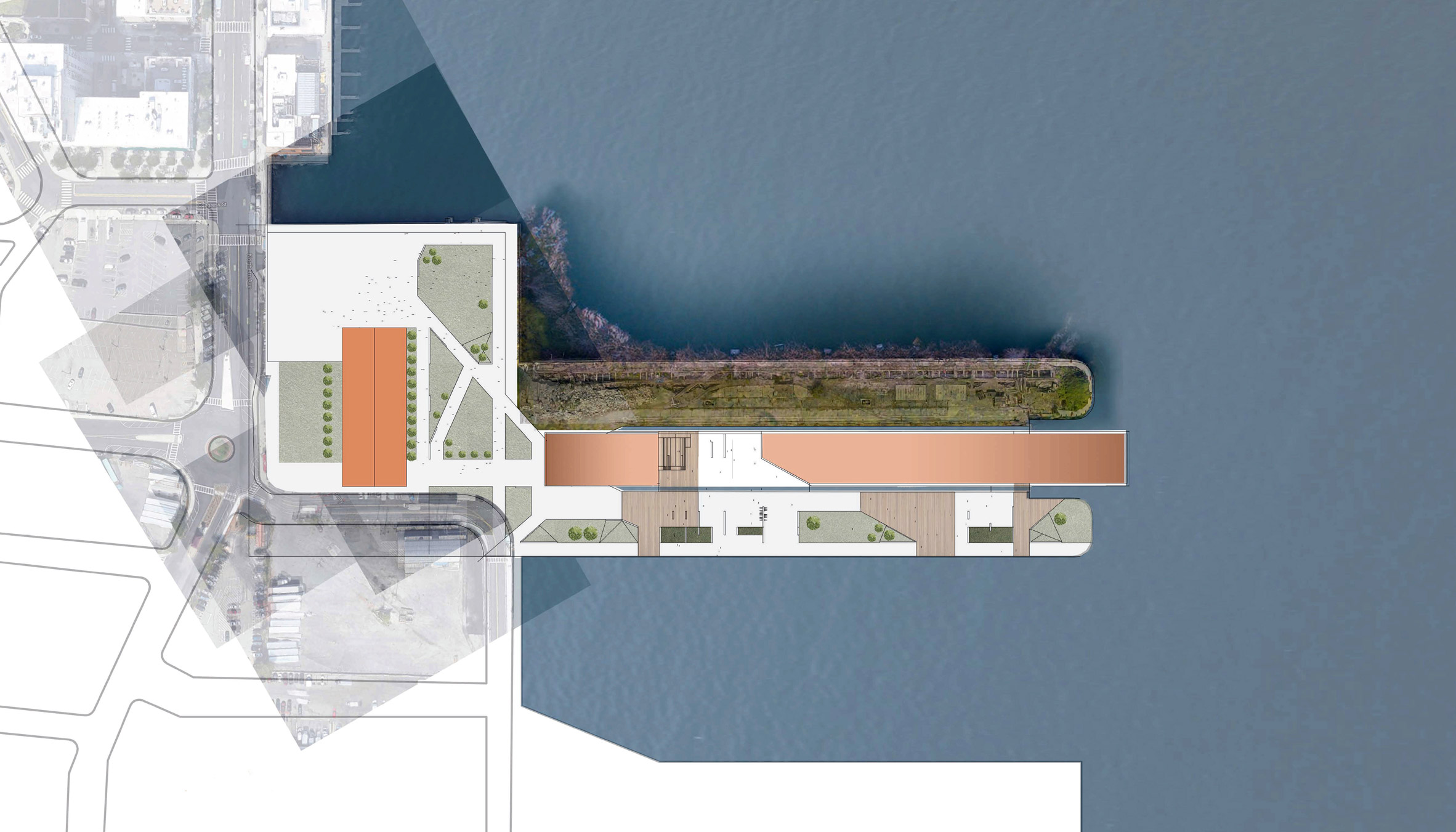
Dry Dock No.4, Boston, USA, by Morgan Harper
"Dry Dock No. 4 in Boston's Seaport District is part of a masterplan aiming to restore life to a post-industrial shoreline.
"This proposal builds upon past solutions that softened the urbanscape and allowed natural ecosystems to form in order to mitigate rising sea levels. It celebrates natural processes of deterioration, recognising water as a powerful force, and uses natural processes of time, allowing the site to heal.
"Rather than disregarding the site's history, the new building rests within the dock, suggesting what once was, while the proposal leaves one of two piers untouched, allowing new micro-ecosystems to form."
Name: Morgan Harper
Project: Dry Dock No.4
Semester: MARC 520, fall 2019
Contact address: mharper.20@gmail.com
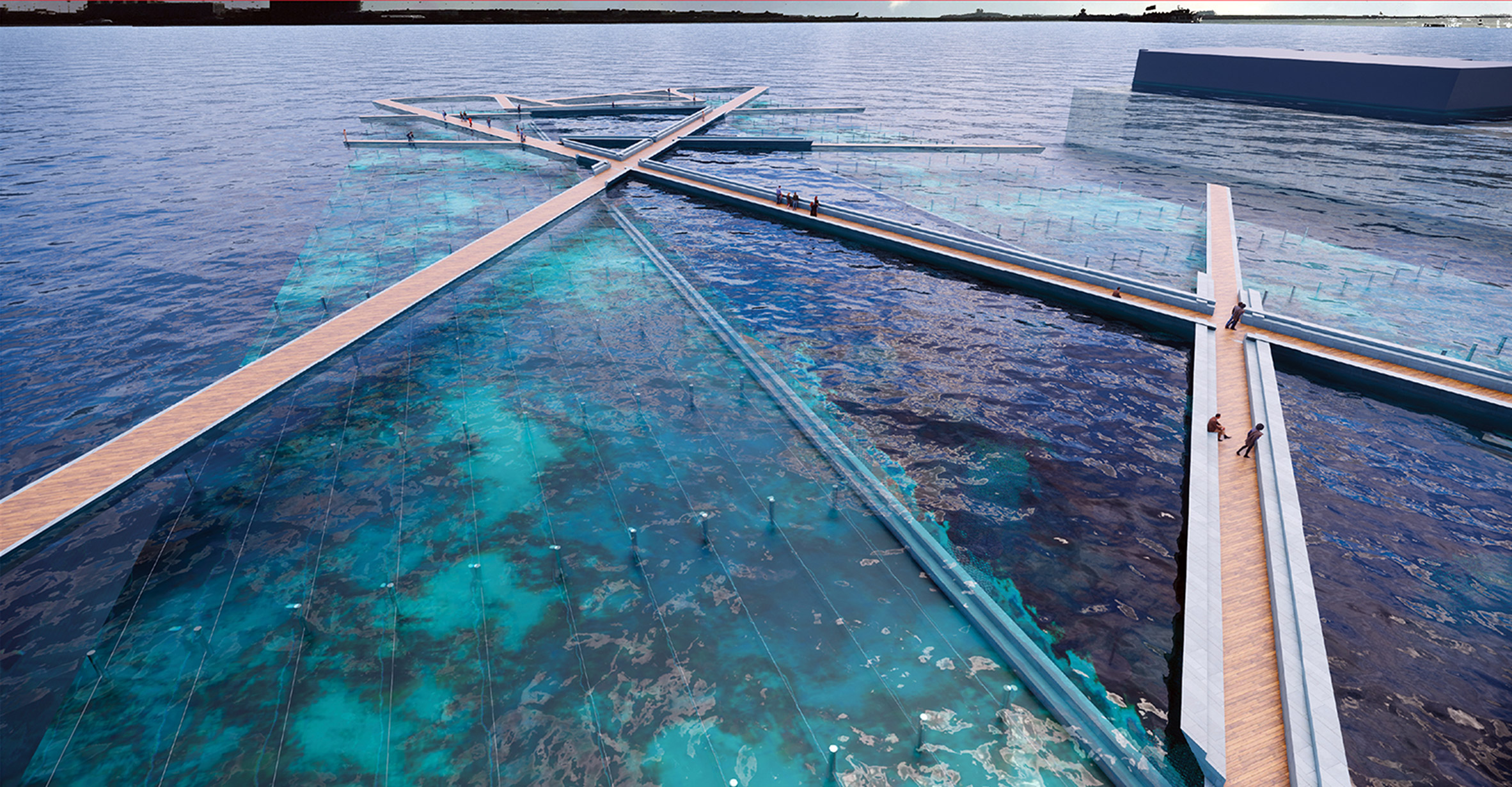
Boston Future Farming, Boston, USA, by Connor Stokes
"In the context of rising sea levels, this project admits the eventual return of land to the sea by creating a system of underwater farms.
"The three-phase design commences with the development of a parkscape with bridges spanning the chasm of the dry dock interior, giving access to the waterfront and off-the-boat sales. The second phase comes with occasional flooding, when farming begins to overtake the site, and the upper park is prepped for sugar kelp growth.
"The final phase is reached when water has engulfed the site, and an underwater farming system becomes a source of commerce and offers export opportunities."
Name: Connor Stokes
Project: Boston Future Farming
Semester: MARC 520, fall 2019
Contact address: cstokes003@drury.edu
Project descriptions are courtesy of the Hammons School of Architecture faculty.
Virtual Design Festival's student and schools initiative offers a simple and affordable platform for student and graduate groups to present their work during the coronavirus pandemic. Click here for more details.
The post 10 projects by Drury University's Master of Architecture students appeared first on Dezeen.
